
Rune Lindblad, who was an engineer and a painter, and also a single father with a son in the late 1950:s, started his sounding experiments as early as the first years of the 1950:s, without prior knowledge of similar experiments being conducted in France and Germany. He kept on composing against the wind all the years up to his premature death in 1991. He also served as a teacher of electronic composition, and some of the most renowned Swedish composers of electroacoustics have had him as their primary teacher and guru.
”Musique Concrete was scratched, scraped, howled and pounded last night in the Community Building. The audience consisted of about forty people, amongst which a few visitors voluntarily payed their admission… The ”works of art” then underwent a structural analysis by Mr Epstein. He addressed interesting phenomenon in the noise, according to different ways of acting woodpecker on sheet iron.”
”Two youngsters were officially pronunced composers. A few whistles and scrapings were percieved as interferences in the tapemachine, but it actually was the first composition, with the literary title ”Essay”… Of course it is embarrasing to recommend a visit to Gotaverken (a ship-yard in Gothenburg), but such a visit would greatly simplify the preparatory work of the noise process”.
Those were citations from two reviews; the first by Ake Engfeldt in Goteborgs-Tidningen, and the second by Bjorn Johansson in Goteborgs Handels- och Sjofartstidning (Main newspapers in Southwestern Sweden). They were published on 15 February 1957, as a reaction to the first concert in Sweden with concrete and electronic music, which took place the night before in Gothenburg. The composers presented were Bruno Epstein and Rune Lindblad (1923 – 1991).
Not so much has changed in the years since. The common audience probably share the same view today about Lindblad’s music, if by chance they would be confronted with it. The electronic and electroacoustic music, which has won global acclaim within a rather small crowd of enthusiasts, is looked upon by the common music consumer as something alienated and strange, even when it comes to the tidy and polished dilettante electroacoustics of later years, which can easily be achieved by any untalented brat with the right soft- and hardware. It is an important observation that the result naturally is empty and pointless, unless an artist with skills turn the levers. A good pen doesn’t produce a better novel. A real artist can write a masterpiece on wrapping paper with a piece of carbon.
There are many works also within the latest electroacoustics and computer music saturated with true craftsmanship and talent, but the spirit of pioneering and discovery, and the special feeling that goes along with those, is gone. It almost seems as if the abundance of digital soundmakers and editing possibilities actually aggrevate the creative process, by all to readily providing smart solutions.
An air of freshness and ingenuity hovers over early works by Bruno Maderna, Luciano Berio, Henri Pousseur, Gottfried Michael Koenig, Herbert Eimert, György Ligeti, Konrad Boehmer, Karlheinz Stockhausen, Pierre Henry, Pierre Schaeffer, James Tenney, Alice Shields, Pauline Oliveros, Ramon Sender, Folke Rabe and others. This spirit also rises out of Rune Lindblad’s music. Right off I can only think of one single modern work that shivers with that same ingenious intensity and curiousness; the monumental ”Phonia Domestica” (1988) by the Swedish occupational therapist Sune Karlsson (1946). This work is so far only available in short excerpts on a home-burned sample CD-R, and it has been heard more officially only once in a Swedish radio-program ten years ago. The sample CD has been aired on a radio station in New Jersey. Sune Karlsson, with improbable energy and stubbornness, set out to record all the sounds he could find in his tiny one-room apartment in Danderyd in northern Stockholm, and he came up with about 12 hours of sound investigations.
Karlsson is an exception in the Swedish music community of today, and surely looked upon as being as odd in Stockholm today as Lindblad was in Gothenburg 1957.










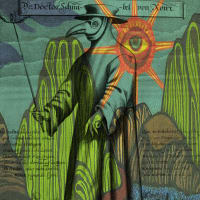
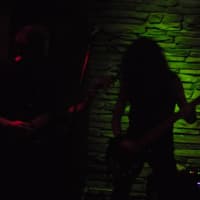
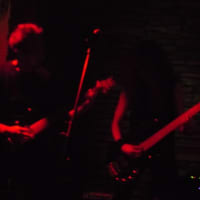
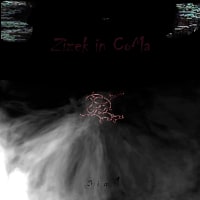
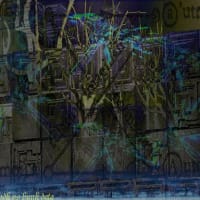
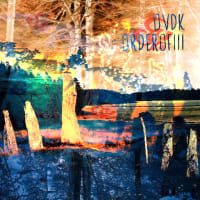
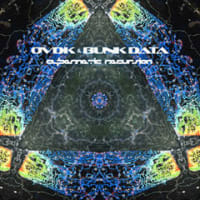
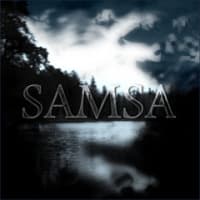
にも興味があるわけでなく、
音楽なるものへの弁証法
お前にとっては義務なのだ。
だから最もマイナーな民族音楽
のかけらも逃したらならない。